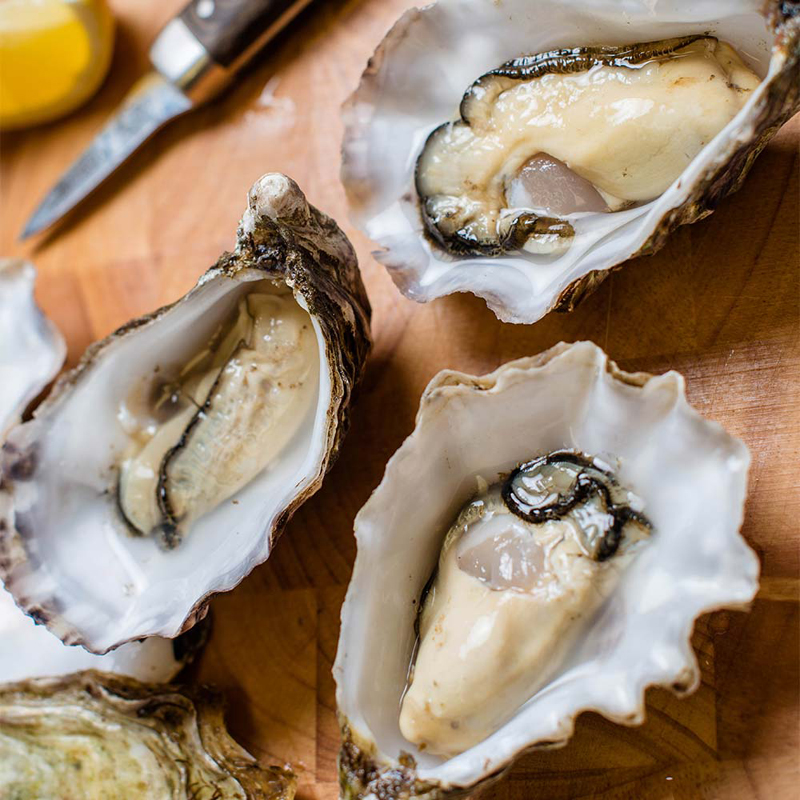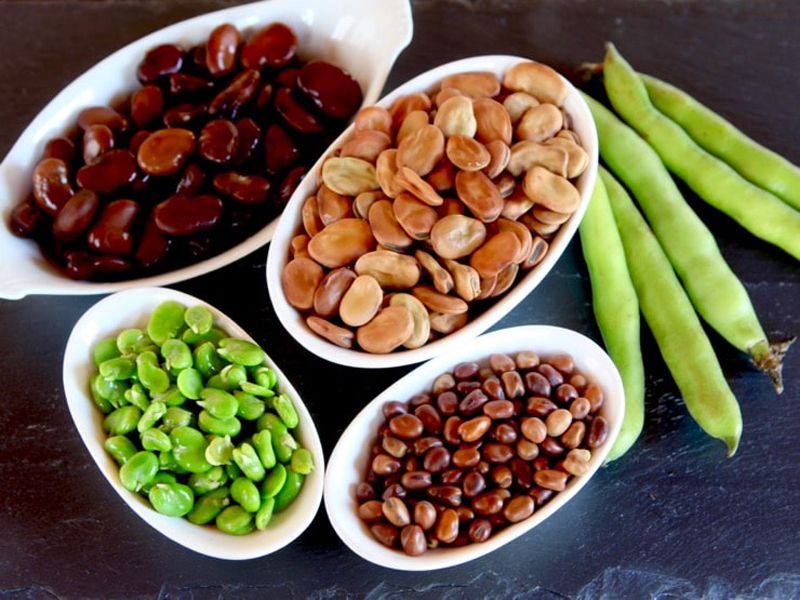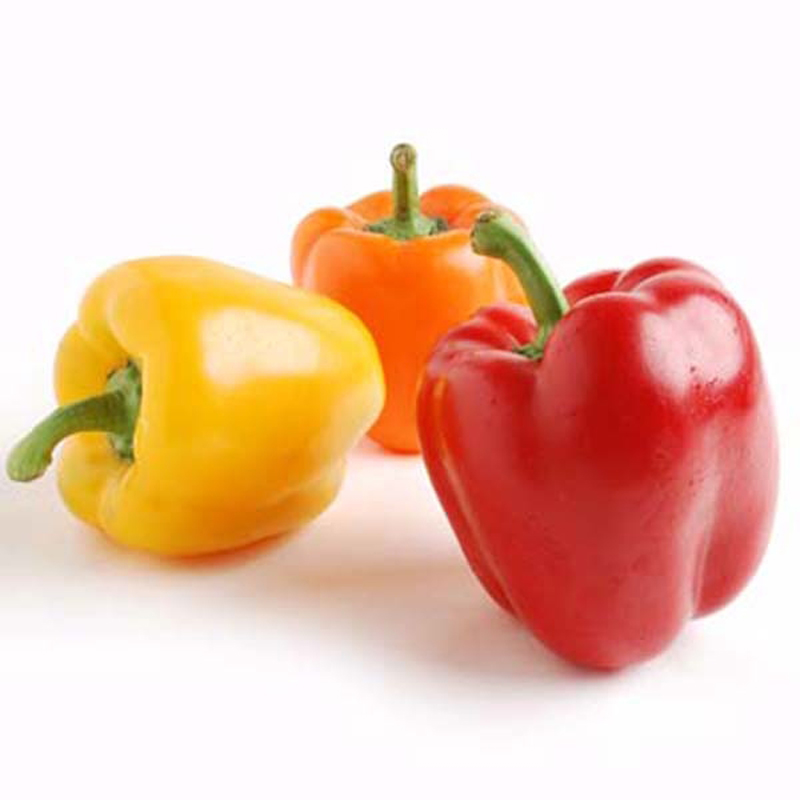From eggs to bell peppers, these picks are rich in essential vitamins and minerals to support hair growth.

Lovely locks aren’t just the result of a stellar styling routine. Mounting scientific evidence is showing that you can eat your way to stronger, thicker, and shinier hair.
“Hair follicle cells are some of the most metabolically active and have amongst the highest cell turnover rate in the body,” says Alan J Bauman, M.D., a hair restoration physician and hair transplant surgeon at Bauman Medical Group in Boca Raton, FL. “Restricting calories or falling short on protein, minerals, essential fatty acids and vitamins can lead to abnormalities in hair fiber structure and production, pigmentation changes as well as hair loss. If you’re deficient in the basic nutritional building blocks like protein, your body won’t produce healthy hair.”
The best vitamins and nutrients for hair growth
Hair growth is most prolific from age 15 to 30, and may slow or change after 40. While there’s no vitamin H to reboot your hair, building a menu that’s rich in these nutrients will offer the biggest benefits:
- Protein
- Iron
- Vitamins A, C, D, and E
- B vitamins
- Omega-3 and -6 fatty acids
- Zinc
- Selenium
- Magnesium
If altering your diet doesn’t do the trick, speak to your doctor, suggests Salvatore J. Di Grandi, M.D., a dermatologist at CareMount Medical in Pawling, NY. Hair loss or drastic hair health changes could be a symptom of an internal disease, like an under-active thyroid, a liver issue, or an autoimmune condition like lupus.
It could also be linked to “telogen effluvium,” the name for hair loss caused by a major life stressor, such as giving birth, a death in the family, a new job, or moving. These triggers will likely require a more multifaceted treatment approach.
But if you’ve ruled out more serious conditions and simply want to boost volume and amp up shine, what you put on your plate matters. Here, dermatologists share the best foods for hair growth you should be eating regularly.
1
Nuts

“Nuts, such as almonds or walnuts, and coconut oil are natural emollients for the skin and hair follicle and also moisturize the hair shaft, leaving it glossy,” says Anna D Guanche, M.D., a board-certified dermatologist at Bella Skin Institute in Calabasas, CA.
Nuts and seeds are also rich in B vitamins, magnesium, zinc, and vitamin E, adds Rhonda Q. Klein, M.D., a dermatologist at Modern Dermatology in Westport, CT. Vitamin E teams up with selenium to keep cell membranes strong and provide antioxidant defense.
2
Fatty fish

Fatty fish, like salmon, herring, tuna and sardines offer protein, vitamin D, omega-3 fats and other hair-boosting components (like linoleum acid, an essential fatty acid) to “nourish the skin and thicken the fat layer around the hair follicle, resulting in healthier hair growth,” she adds.
3
Oysters

While red meat, leafy greens, whole grains, beans, and egg yolks provide iron as well, Dr. Wendel and Dr. Klein are particularly fond of oysters since they offer a one-two punch of iron and zinc—the latter of which is “an essential mineral that aids in hair growth and repairs hair cycle support,” according to Dr. Klein. A 3.5-ounce serving of smoked oysters will add about 7 milligrams (mg) of iron and a whopping 63 mg of zinc to your diet.
4
Spinach
 |
| Add caption |
Beyond beefing up your iron levels, spinach is full of folate, along with vitamins A and C. “While vitamin C deficiency is rare in our current society, it’s essential for collagen synthesis and cross-linking of keratin fibers, which occurs in hair fiber production,” says Dr. Bauman.
5
Eggs

Plus, eggs yolks in particular are potent in vitamin D, which is important to get via diet or supplementation since our bodies don’t produce it naturally, says Anthony Youn, M.D., a board-certified plastic surgeon in Troy, MI. Just one large egg has about 41 IU of vitamin D, or 10% of your daily value.
6
Beans

Not feeling white beans? Black beans, chickpeas, lentils, peas, and other pulses will help you switch things up and still pack tons of hair-healthy protein, iron, and fiber.
7
Grass-fed beef

A 4-ounce portion will score you 23 grams of protein, nearly 3 mg of iron, and roughly 6 grams of unsaturated fats.
8
Sweet potatoes

In fact, the average sweet potato packs nearly six times your daily value of vitamin A, “which aids in sebum (a.k.a. oil) production and also may help speed up the rate of hair growth,” Dr. Klein says. Plus, all that vitamin A benefits your eye health and immune function, too.
9
Bell peppers

Of course, you can find plenty of vitamin C in fruits like oranges, strawberries, and kiwi, but red bell peppers will easily knock your daily value out of the park with 95 mg per 1/2 cup. Plus, they also pack vitamin A and some iron, zinc, selenium, and folate, too.
10
Greek yogurt

![[feature] 10 Foods That Will Help Your Hair Grow Thicker and Stronger](https://blogger.googleusercontent.com/img/b/R29vZ2xl/AVvXsEineswAD3zEfjsRgE-4TZg9zNFIr3ilyEAJhORoJRrtnEONQVjwrDm69B4GMI-Q-K8UooKtX_PeNhuYj4GwJ1X2Qgx8zA9zdISXk5TmgsMfS6WkU9SCLPdTuHW7UStowoF4JKCvRm0OdiVy/s1600/women+1.jpg)
























